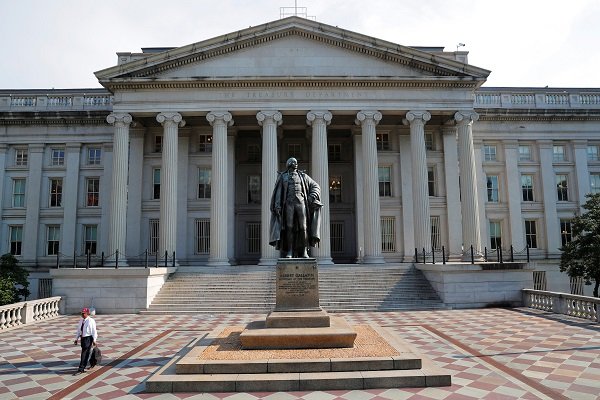
Know any annoying people
who think their most important concern should be everyone’s most important
concern and just has to be part of every single decision? I’m one of them. Here
are recommendations for the Biden cabinet, through a China economic lens.
Treasury
The Department of the Treasury’s long-time role has been to block serious actions against Beijing because they might harm the US financial sector. The Trump administration Treasury took that on, and then some. The main battle in the Biden administration is a conventional pick such as Fed governor Lael Brainard versus someone more progressive.
One way to split the difference is to require a centrist nominee to impose transparency. The issue is not limited to China but certainly applies there. Since January 2017, American portfolio investment in China has more than doubled, setting records in July (latest). The money may support advanced technology or firms supporting the military — there’s no disclosure.
In addition, investment “in the Cayman Islands” rose $1 trillion since 2017. An in-depth projection is more than one-third heads to China. Regardless, there’s no defense for saying over $2 trillion dollars has been funneled to the Caymans in total but the true destination should be secret. A Treasury secretary willing take on Wall Street on transparency will greatly improve China policy.

Commerce
Secretary of Commerce has
been a less important cabinet position. Not anymore. Commerce is on the front
line of the technology contest with Beijing, a responsibility it has failed
miserably the past four years.
Export control reform sailed through Congress on an overwhelming basis (400-2 in the House) in summer 2018. It remains almost entirely unimplemented. The Trump administration’s frequent additions to the Entity List merely add an application process, they’ve already permitted continued sales to Huawei. Commerce should be compelled to release information about applications approved, sales volume, and unprotected products.
Even though my issue really
is the most important, China views probably won’t determine the next Commerce
Secretary. The second-best option is a secretary willing to delegate to the
Under Secretary for Industry and Security — a position the Trump administration
failed to fill — who will implement US law. Failing that, Congress should
assign the protection of American technology to another agency.
USTR
Unlike Treasury and Commerce, the Trump administration’s USTR did strengthen the American position versus China. Not through the phase 1 trade deal, which sees American money flying west, Beijing falling far short of import pledges, and the US failing to monitor Chinese intellectual property practices. Tariffs may be a net positive but in any case a small one, and other options were better.
Instead, the most useful policy was completing the United-States Mexico-Canada agreement (USMCA). USMCA is far from ideal but sets a baseline that can be matched or improved on with the United Kingdom, Kenya, Taiwan, and others. Its bipartisan support provides the needed assurance to our partners that negotiations can pay off.
The Biden administration
should avoid making USTR solely a trade enforcement body, though that may be
politically appealing. We have multiple options for high-standard agreements
that would expand the group of good partners, excluding and pressuring
predators like the PRC at low risk and much lower cost than the subsidies now
being considered.
White House
The most important China
policy organization within the White House is the National Security Council
(NSC). The National Economic Council and Council of Economic Advisors could
play roles, among others, but this is one too many councils. Ideally, one body
advises the president on conventional economic issues and one on those with a
strategic component such as competing with the PRC.
Trump administration NSC China actions suffered in part due to lack of ability to identify best responses to Beijing’s most harmful economic policies. The National Economic Council was largely useless on the PRC, and sometimes worse than useless. Instead of overcoming silos elsewhere, Trump White House China policy was also put into silos.
The Biden administration should ensure the NSC has economic expertise to oversee China policy and no other group interferes with its role (ideally by reducing the number of chefs). Economic competition with the PRC is much more important than a decade ago and the White House must evolve in response.
The post The Biden China cabinet appeared first on American Enterprise Institute – AEI.
